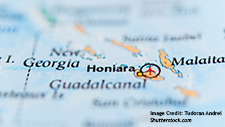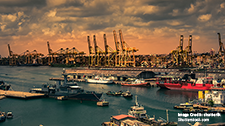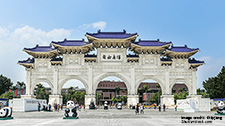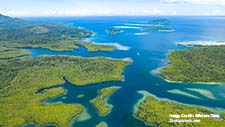Separatism in the South Pacific: From Bougainville to West Papua
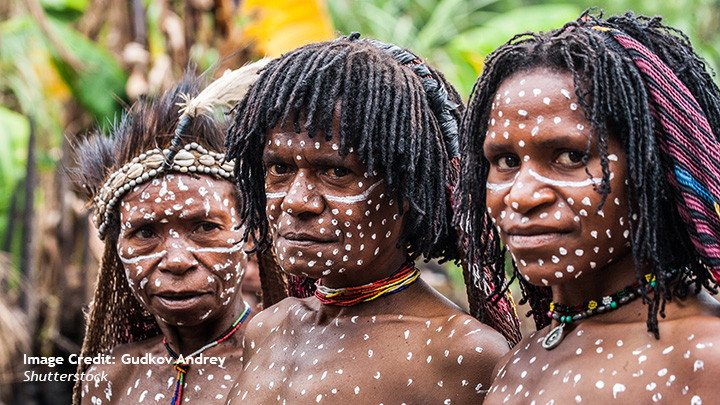
Stephen Crowther
Introduction
Bougainville, an autonomous island region of Papua New Guinea (PNG) on its easternmost edges, has just voted in an independence referendum that resulted in a 97 percent majority in favor of sovereignty. Though non-binding, it will be difficult for the PNG government to resist such a clear call from the people of Bougainville. On the western side of the island of New Guinea, is the province of West Papua. The region, which has been ruled by Indonesia for over fifty years, has over the past few months witnessed some of the worst violence in the history of its independence-tinged conflict.
This paper seeks to examine the causes and prospects of independence for the two Melanesian territories of Bougainville and West Papua, at either extremity of PNG (the largest Pacific island state). Separation for either is far from guaranteed, with Jakarta’s grip on West Papua particularly strong. The role of foreign powers in these events will be assessed, with China receiving particular attention, as it seeks to expand its influence in the region to counter the traditionally dominant countries of the United States, Australia and New Zealand. Newly sovereign nations offer a rare opportunity of extending influence, which makes this region of great interest to foreign policy observers over the coming years.
Background on Bougainville
Bougainville is geographically and ethnically much closer to the Solomon Islands, its neighbor to the south, than it is to Papua New Guinea, which has ruled the territory since the country itself gained independence from Australia in 1975. This is the underlying reason why the independence movement in Bougainville has lasted for many decades, and why it continues to burn bright in the minds of many of its citizens.
The island is incredibly rich in natural resources, with the Panguna mine being the key prize. It is one of the world’s largest copper and gold mines, and once gave Bougainville more advanced socioeconomic indicators than the rest of PNG. However, it has remained closed since the late 1980s, following a dispute which fueled the decade-long civil war between the local people and the central government in Port Moresby. The conflict arose in 1988 as most of the revenue and employment benefits of the mine were seen to be going either to the PNG government, or the private company running it. Meanwhile, the costs of the operation were falling disproportionately on local people, with environmental degradation and a whole range of social ills displeasing those living in the area. The Bougainville Revolutionary Army (BRA) was the leading player in the conflict, with the Bougainville Resistance Force (BRF) a counterforce that, though generally also supportive of independence, often acted in concert with the armed forces of PNG against the interests of the BRA. The number of those thought to have died in the armed struggle before a ceasefire was signed in 1998 are estimated at between 10,000-15,000. This amounted to as many as a tenth of the entire population.
The Sandline crisis in 1997 marked the beginning of the end of the conflict, as the then Prime Minister of PNG, Sir Julius Chan, was forced to resign after it became apparent that he had hired African mercenaries through a private security contractor to crush the rebellion. The armistice signed in April 1998, overseen by New Zealand and Australia, allowed for peacekeeping troops to supervise domestic security on the island, and created the conditions for the Bougainville Peace Agreement to be signed three years later in August 2001. This set Bougainville on its current trajectory, giving it more autonomy within PNG and offering a future referendum on independence. Though the overwhelming vote in support of independence in December 2019 is technically non-binding on PNG’s government, and it seems difficult to imagine it ignoring the result, prolonged talks between both sides seem the likely next stage.
Background on West Papua
2019 marks the fiftieth anniversary of the “Act of Free Choice” of August 1969 that symbolized the permanent entry of West Papua into the Republic of Indonesia. Though much has changed in the province and throughout the country since then, in terms of the political situation, a great deal has stayed the same. Most importantly, this includes the enduring movement advocating for West Papuan independence.
Historically, West Papua was part of the Dutch East Indies, and therefore under the same administration as the rest of present-day Indonesia. However, its different ethnic make-up and prohibitive mountain, jungle and swamp terrain resulted in different management by the Dutch, who carved the territory out of the newly sovereign Indonesia in 1949, with the intention of preparing it for a separate independent future. International pressure on the Netherlands built over subsequent years, with Indonesian President Sukarno leading the charge. At the height of the Cold War, the Kennedy administration mediated efforts to reach a settlement that would balance the interests of Indonesia, its ally in the fight against communism, and the wishes of the Papuan people themselves.
The 1962 New York Agreement that followed resulted in Indonesia gaining provisional control over the territory, with the proviso that an “Act of Free Choice” would allow indigenous Papuans to choose their own future in 1969. Though intended as a plebiscite of as broad a range of society as possible, the reality was the Indonesian authorities hand-picking around 1,000 local leaders to conduct the vote, with a show of hands being the chosen counting method. The outcome of this coercive process was unsurprising, with Indonesia gaining international recognition for its control over the territory, having stage-managed the process to ensure no other alternative.
Fast forward to today, and continued Indonesian control is important to it for two reasons. The first is its ideational significance in defining the eastern territorial reaches of the nation. The second is West Papua’s great mineral wealth, best embodied by the huge Grasberg mine, which contains one of the world’s largest stores of copper and gold, helping to fill Jakarta’s treasury. The continued poor socioeconomic condition of the Papuan people themselves, who have seen little benefit from the mine or other developments in the territory, has driven the low-rumbling independence conflict since the 1960s.
Recently, some of the most violent scenes of the entire dispute broke out across West Papua, with additional protests in other parts of Indonesia. This was sparked by an alleged incident involving ethnic Papuan students studying in Java. Some believed they had disrespected an Indonesian flag by throwing it into a sewer around the time of the country’s Independence Day. After word spread on social media, protesters surrounded the building over the following days, singing nationalist and anti-Papuan songs. It was then alleged that some of the chanting had included references to terms such as “monkey” to refer to the Papuans. This in turn ignited widespread protests and rioting in West Papua itself, with tens of thousands of the indigenous populace demonstrating in August and September in cities including Jayapura, Sorong, Timika and Wamena. Many carried the politically charged Morning Star flag of West Papuan independence, with others targeting symbols of the government and security establishment, including the parliamentary building in Manokwari, which was torched. It is estimated around 35 people were killed in the violence, most of whom were Papuans that had sustained gunshot wounds thought to have been caused by the security services. Several amongst the number were from the non-ethnic Papuan community, with virtually the entire civilian immigrant population of Wamena in the highlands being evacuated.
The recent bloody unrest may be just another in a long line of similar events in the past that resulted in little change in the political situation. Or it might not. The racial character of the complaints igniting the protests could herald a shift in the relationship between Papuans and the Indonesian authorities. This is because it challenges the narrative from Jakarta that Papuans are indelibly Indonesian, treated as equals, and that West Papua forms an inseparable part of the Indonesian state.
The Role of Foreign Powers: China’s Rising Star in the South Pacific
In West Papua, foreign powers have only played a minor role since the 1960s, with ties to Indonesia being prioritized over any official solidarity that might be offered to the indigenous people. Given the size of Indonesia, it is also more able to manage development projects and offer aid itself, rather than courting international donors to do so, thus narrowing the potential space for foreign influence.
Bougainville offers a completely different picture. It has recently been rumored that a Chinese mission offered as much as 1 billion USD in 2018 to fund Bougainville’s transition to independence. This includes potential investments in the tourism sector, as well as economic mainstays such as agriculture and mining. Funding for a new port was also apparently mentioned, in addition to various road building projects designed to stimulate development. This fits the recent pattern of much deeper Chinese engagement across the Melanesian region, from PNG to the Solomon Islands, Vanuatu and Fiji. Diplomatically, Beijing was able to prize Taiwan’s political recognition away from both Kiribati and the Solomon Islands in September. Many countries in the area also receive large quantities of investment as part of China’s vast Belt and Road Initiative.
The immense mineral wealth of Bougainville is a major attraction for China. It also speaks to the weak position the theoretically newly independent state would be in. Given the degree to which it currently relies on subsidies from the PNG government, there would be a large fiscal hole needing to be filled. The Panguna mine offers a clear chance to solve this problem, given the potential estimated value of 60 billion USD placed on its mineral reserves. This perhaps explains why China appears to have been the first suitor to dangle the prospect of serious investment in front of local leaders, but it must also be careful. This is because it also has interests in the far larger continuing state of PNG, including in natural resources, so it must proceed carefully whilst independence remains a hypothetical outcome.
Other powers are also acting to protect their regional interests. In October, the United States, along with Australia, New Zealand and Japan, rushed to provide an additional 2 million USD in emergency funding to allow the referendum to go ahead, when a shortfall threatened to delay the process. It appears Beijing was not asked, perhaps showing that its star has yet to eclipse the more traditional powers dwelling under the South Pacific’s skies. Indeed, China’s increased assertiveness in the region has resulted in countries such as Australia reaffirming their commitments to an area long considered theirs to naturally oversee. Canberra initiated a “step up” in its engagement in 2017, but the Australians will not want a repeat of how events played out in East Timor twenty years ago. In that instance, they squandered a huge amount of goodwill from a newly independent nation they helped to create, by capitalizing on their dominance and unfairly exploiting shared maritime resources.
Similarities Between Bougainville and West Papua
Beyond the simple Melanesian ethnic and cultural heritage that both share and their geographic position on the south-western edge of the Pacific Ocean, there are a great many commonalities in the cases of West Papua and Bougainville. The central governments in Jakarta and Port Moresby would do well to heed the lessons that both offer.
The indigenous peoples of both are at a disadvantage in their own territories, with traditional land ownership being sidestepped in favor of tapping the rich natural resources available, which is the root cause of the discontent. Both the Panguna mine on Bougainville and the Grasberg mine in West Papua contain vast veins of copper and gold, which large Western firms have tapped. A local subsidiary of Rio Tinto ran the show in Bougainville whilst the mine was still operating, with Rio Tinto also having a large share at the mine in West Papua until recently, with an American company, Freeport-McMoRan, now the dominant stakeholder there. These mining operations fuel calls for independence, as under local ownership they could easily bankroll the high costs associated with future sovereignty, and the inevitable withdrawal of central government subsidies that would result.
The political status of both was effectively decided for them by the governing power in the late 1960s and early 1970s. The “Act of Free Choice” in West Papua has already been covered, but there was also a referendum in Bougainville in 1975 that the local people held just before formal colonial handover of PNG by Australia. The results were overwhelmingly in favor of secession, but the outcome was ignored, with the result being that the views of the indigenous people on independence have not been respected in either, helping to sustain the instability that continues to this day. Despite both being given autonomous status and greater local political power at the turn of the century, this compromise has not succeeded, and has, if anything, served to widen the gap between expectation and reality, as the promised benefits of autonomy fail to materialize.
Immigration in each case has been another crucial factor in stirring up tensions between the peripheral territories and the center. For many years in West Papua an official policy of transmigration encouraged many hundreds of thousands of largely poorer citizens to migrate from other parts of Indonesia, particularly from Java, to seek economic advancement. This has resulted in a population shift, whereby, though at the time of independence the number of non-Papuans amounted to only a few thousand, some surveys suggest the indigenous population is now an overall minority. Despite being on a different scale to West Papua, the number of individuals from other parts of PNG who came to work at the Panguna mine in Bougainville also caused great tension. The continued economic disadvantage of most locals was contrasted with the high salaries of the newcomers, who are also ethnically distinct from Bougainvilleans, fostering deep resentment.
What the Future May Hold
Overall, though this paper has shown many of the striking similarities between Bougainville and West Papua, the reality is that the former is much further along the road to independence. It thus serves as a powerful Melanesian example of a potential future path for West Papua. The agreement which resulted in the December 2019 Bougainville independence referendum had been future dated. This gave the government ample time to demonstrate to the local people the benefits of remaining in the country, whilst ultimately giving them the chance to have their own say on their future. As the referendum was non-binding, this offered greater political cover for the vote to be offered in the first place, which is highly advantageous.
It has been suggested that Bougainville might make a unilateral declaration of independence if the PNG government does not approve full sovereignty quickly enough. All external parties will need to approach the current situation extremely delicately. Were a country such as China to unilaterally recognize Bougainville’s independence, there would be a real risk of doing irreparable damage to the relationship with PNG. However, too cautious a response could allow others a head start, as the vulnerable position of Bougainville would likely see it pursue investment from the highest bidder. The prospect of enduring political influence in what will likely be the world’s newest state is enticing, but it will also require adept political maneuvering and a good deal of luck.
Related Publications
-
The Geopolitical Aftershocks of the China-Solomon Islands Security Agreement
Introduction: Chinese President Xi Jinping, shortly after taking office, remarked in 2012 that “the vast Pacific Ocean has ample space for China and the United States.” The comment was made at a […]
-
Amid Reports on Chinese Expansion of Bases, Sri Lanka Unveils SOP: Need for a Reality Check?
India has realized it cannot possibly balance China’s growing influence on its own, nor can it afford to have the U.S. leave the Indian Ocean Region (IOR) given China’s significant […]
-
Connecting Taiwan and Finland: An Interview with Prof. Julie Yu-Wen Chen
Julie Yu-wen Chen is Professor of Chinese Studies at the University of Helsinki in Finland. Since 2023, she has been involved in the EU twinning project “The EU in the […]
-
Taiwan and the Diplomatic Squeeze
In mid-March 2023, the self-governing island of Taiwan lost another one of its already few diplomatic allies. Announcing the severing of diplomatic ties between Taiwan and Honduras on Twitter on March 15, […]
-
China in Sri Lanka and Solomon Islands: Role of Littorals in the Geopolitical Competition
Abstract: This issue brief discusses the growing Chinese sphere of influence in Sri Lanka and Solomon Islands, its impact on the region and on the regional powers, India and Australia. […]
